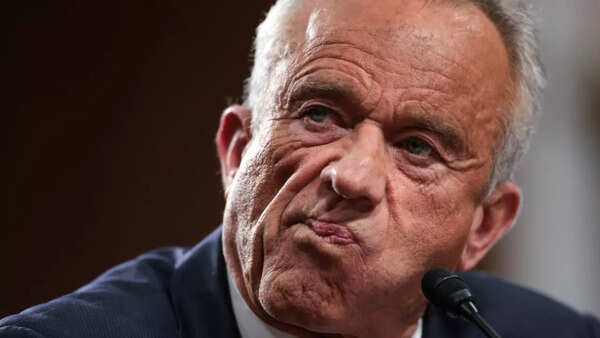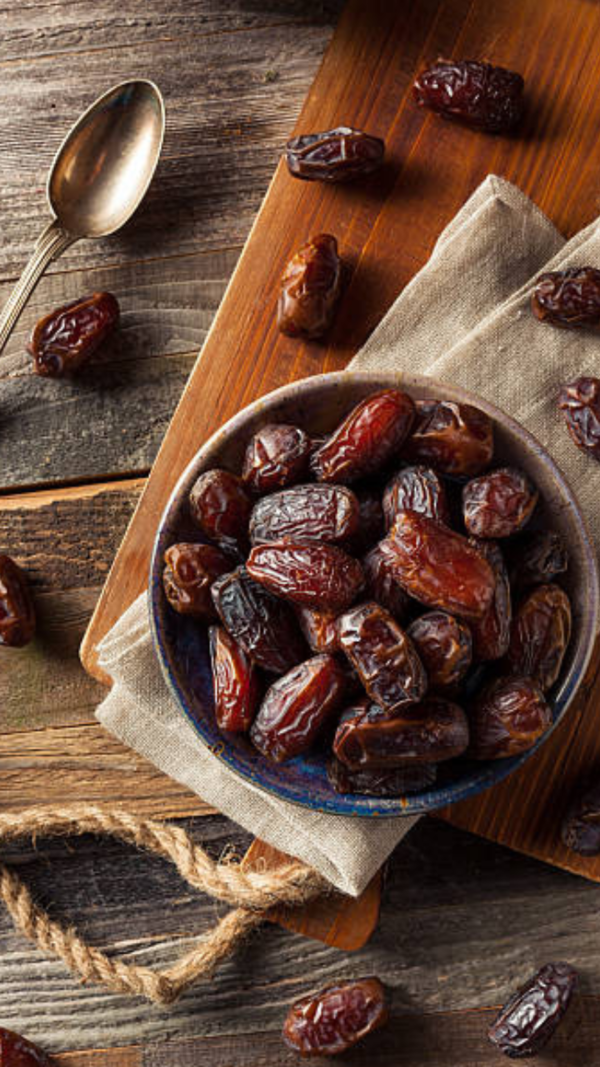- News
- lifestyle
- health-fitness
- health-news
- RFK Jr. backtracks after embarrassing measles comment; Where do the fall shots stand now?
Trending
RFK Jr. backtracks after embarrassing measles comment; Where do the fall shots stand now?
RFK Jr. retracted his earlier dismissal of the measles outbreak after the first child death in decades, stating it's a top priority. He halted a $460 million project for a new COVID-19 pill vaccine and emphasized the necessity of reviewing vaccine production agreements due to previous administration's mismanagement.
Seems like RFK Jr. is eating his own words!
The US Secretary of Health and Human Services backtracked two days after he dismissed the first American child’s death from measles in decades by saying that outbreaks were “not unusual.” Taking to X (formerly, Twitter), Robert F Kennedy Jr. wrote, “Ending the measles outbreak is a top priority for me and my extraordinary team at HHS.” He also added that the HHS had sent 2,000 doses of the measles vaccine to Texas, which has become an outbreak epicenter, saying, “My heart goes out to the families impacted by the current measles outbreak in TX. I recognize the serious impact of this outbreak on families, children, and healthcare workers.”
What happened?
RFK Jr. paused a multimillion-dollar project to create a new COVID-19 vaccine in pill form on Tuesday, and as an advisory committee said Wednesday, the Food and Drug Administration canceled an advisory committee meeting on updating next season’s flu vaccine.
The COVID project alone was a $460 million contract with Vaxart to develop a new COVID vaccine in pill form, with 10,000 people scheduled to begin clinical trials on Monday.

Of that, $240 million was reportedly already authorized for the preliminary study.
According to Fox News, Kennedy said, “While it is crucial that the Department [of] Health and Human Services support pandemic preparedness, four years of the Biden administration’s failed oversight have made it necessary to review agreements for vaccine production, including Vaxart’s.” He added, “I look forward to working with Vaxart and medical experts to ensure this work produces safe, effective, and fiscal-minded vaccine technology.”
What could be the repercussions?
Epidemiologist Michael Osterholm, the head of the University of Minnesota Center for Infectious Disease Research and Policy, joined Morning Edition host Cathy Wurzer to talk about the implications of axing the meeting.

As a matter of fact, it takes about six months for the virus that scientists use for the vaccine to grow. It’s then available in late summer or early fall.
As per Osterholm, “It’s like planting a garden. If you postpone it two months, you might be in trouble when you can harvest, and if you can harvest it at all.”
The timeline is already tight to make an educated estimation on what flu strains will be a problem next year, and the virus can change between now and then.
Osterholm said, “But this is our best guess and our best attempt to give us the best match for the virus circulating next winter and what’s in the vaccine.”
When asked about whether the vaccines manufactured without FDA or CDC panel guidance could be cancelled or not, Osterholm explained that the panels evaluate what’s been happening with the flu in the southern hemisphere, and the strains circulating there typically predict what’s likely to happen in the U.S. four to five months later. According to him, “Without those kind of data, we can’t do that,” he said. “It’s not just something casually done saying, ‘Ah, let’s just go with that one, OK?’ Now there really is a major effort made to come up with the closest match we can. So this timing and the meetings themselves are very, very important.”
But how could people get shots if the federal government scales back mass vaccination?
Osterholm said, “At this point, we are really in the worst place I’ve been in my 50-year career in terms of vaccine preventable diseases.” He added, “And so there is this ever-creeping concern coming into the vaccine picture of people who are not getting vaccinated. We have a real battle on our hands right now in terms of helping the public understand what will happen if they’re not vaccinating their kids. What this means is this is not without a consequence. So you may think you’re making a moral choice. We're also making a choice that can end up killing your child.”
End of Article
FOLLOW US ON SOCIAL MEDIA
Visual Stories
Tired of too many ads?go ad free now










